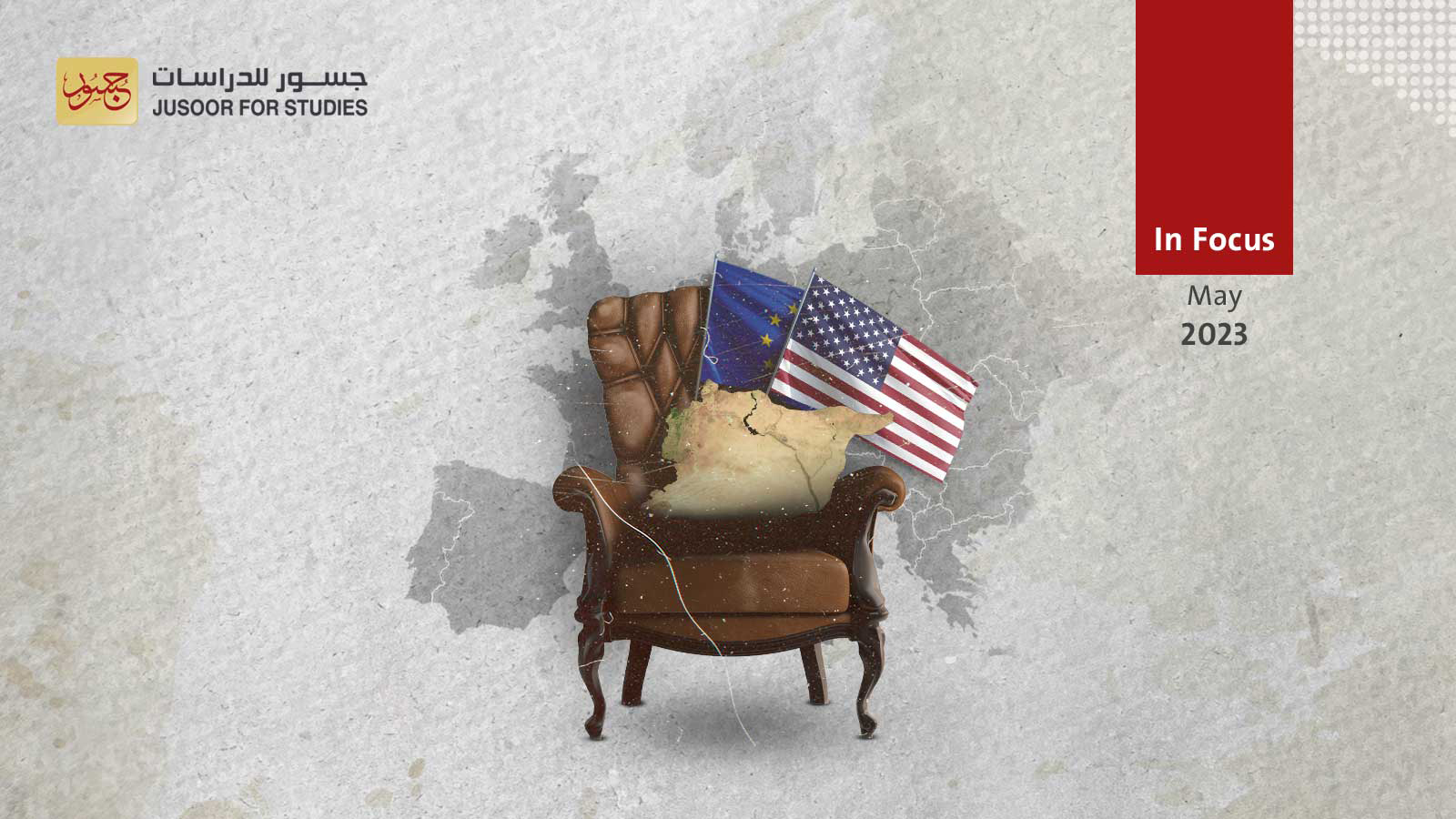The United Nations' stance towards normalization initiatives with the Syrian regime
Since the occurrence of the destructive earthquake, many normalization initiatives with the Syrian regime have become active, all of which call for a political solution. However, the most prominent of these is the Russian-mediated Turkish normalization initiative, as well as Arab normalization initiatives that Saudi Arabia is attempting to coordinate and lead its efforts. In addition, some European countries such as Greece are seeking to crystallize a normalization track specific to them.
Accordingly, the United Nations Special Envoy to Syria, Mr. Geir O. Pedersen, calls for unifying diplomatic efforts and turning these initiatives into coordinated ones rather than remaining individual ones, in line with the step-by-step approach. However, these efforts still face many obstacles, the most prominent of which are the conflict between Russia and the West, Arab-Arab disagreements, and the US-Iranian conflict.
During his briefing to the Security Council on April 27, 2023, Pedersen considered the diplomatic efforts made by some Arab countries, specifically Saudi Arabia, Jordan, and Egypt, and such engagement with the regime marked " a potentially important juncture in efforts to move forward a political process on Syria " .
This position represents a relative setback from his previous position expressed in his previous briefing on March 23, in which he criticized normalization efforts as individual initiatives that cannot push the political process forward. This difference in position indicates the UN's acceptance of normalization initiatives and it also suggests that the UN could be engaged in such initiatives in order to pass the step-by-step approach, which Pedersen himself talked about in his briefing.
The Special Envoy seeks to address the concerns of all parties to each initiative after integrating it into the step-by-step approach. These concerns include fundamentally changing the military stalemate, restoring Syria's sovereignty, or independence, and territorial integrity, addressing structural issues and economic reform, rebuilding Syria, combating terrorism, achieving stability in Syria and ending sources of regional instability, invoking collective responsibility in protecting Syrian civilians, and addressing the issue of detainees, abducted, missing, and disappeared persons, and ensuring safe, voluntary and dignified conditions for the return of Syrian refugees.
It appears that Pedersen is banking on the failure of normalization initiatives unless they commit to achieving a political solution in accordance with Resolution 2254 (2015). He also sees such initiatives as being in a testing phase. If they pass or progress, they can be integrated into the step-by-step approach. In the meantime, he continues his efforts to resume the work of the Constitutional Committee and shows that he is still responsible for implementing Resolution 2254.
Nonetheless, it seems that the United Nations and the Special Envoy have no other alternatives, meaning that they need to engage with all parties and in all diplomatic efforts, as they are unable to facilitate a solution on their own, including the stalled political process since mid-June 2022.
All in all, the current situation is one of the worst stages that the international political process in Syria has gone through. It is also one of the worst stages that the Syrian opposition has experienced, as it is losing almost all of its gains obtained through the decisions of the League of Arab States and the United Nations.
Finally, the opposition must reject all normalization initiatives and refuse to engage in any of them, even if some gains are achieved, such as humanitarian issues.








